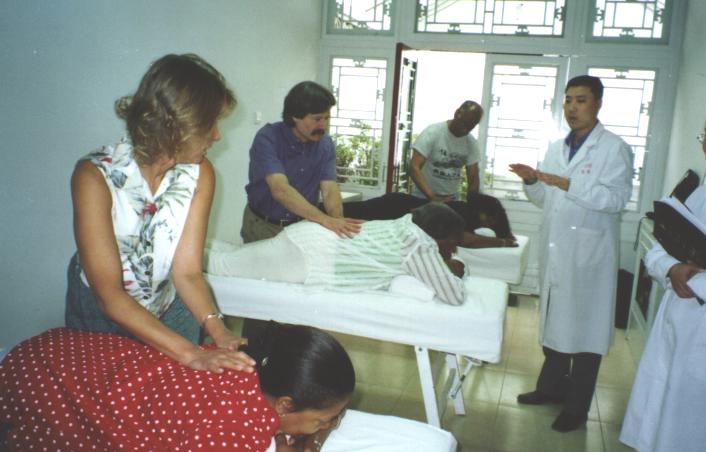By
Sonnie Ekwowusi, LagosAs we mark our 47th independence anniversary full of hope and optimism of a better Nigeria where true patriotism, selfless service and unity reign, the name of one Nigerian who died last week is apt for mention. Although his name might not have made the headlines, nevertheless he quietly contributed to the building of the country through tireless pastoral work and active participation in projects targeted at overall human development. Many across the country who have met him will easily attest to his warm character, alluring personality, contagious smile, simplicity and unpretentious self-effacement. He was an obedient, affable, humble, sweet and patient gentleman. He made friends across the different divides and remained loyal to those friends till death. His wit, learning and good remarks were as attractive as his presence.

Slim, soft-spoken, extremely refined and orderly with a respectable towering figure, he rarely lost his calm even in the thick of the Lagos vehicular traffic jams. He was an approachable Catholic priest. He always kept his door open for all who cared to step in and solicit for his advice. A consummate Christian humanist, he was interested in both the spiritual and material needs of his flock. He was pained by the suffering afflicting many Nigerians. In Lagos , Benin , Enugu , Owerri, Calabar, Kaduna and Abuja , his name rings a bell in some circles. Different mourners from different parts of the country who thronged the Ikoyi Cemetery last Thursday to bid him farewell testified how he touched their lives in different ways. One mourner who could not control his emotion broke down in tears.
I am talking about Fr. James Munoz Chapuli, Catholic priest of Opus Dei, Censor Deputatis, Catholic Archdiocese of Lagos, who passed away last Tuesday after a brief illness and was buried last Thursday in Lagos . He would have clocked 66 on December 18. Wondering why he is being introduced as a Nigerian when his names sound foreign? Well, Fr. James, as he is fondly called, was born a Spaniard, but upon arriving Nigeria and living for many years, he opted to become a Nigerian citizen. In fact, he came to Nigeria in 1969 after sojourning in Kenya, and since then had been habitually residing and working in Nigeria until death struck. By simple calculation, he lived in Nigeria for 38 years, which means that he was more Nigerian than many Nigerian citizens by birth. Impelled by the passionate love for the country and desire to render services to those in need, he became a Nigerian by naturalization. He had a true Nigerian heart. He performed his civic responsibility as a Nigerian citizen: he voted at elections. Once he queued up like everyone else at a pooling station to cast his vote. Spotting a tall oyibo priest in white cassock in the queue, some of the voters raised their hands in protest. But upon learning that he was a naturalized Nigerian citizen, they were much edified.
Fr. James, no doubt, was a towering figure, both in height, at heart and in intellectual capacity. His exceptional intellectual versatility; lucidity of his thought especially in philosophical and theological matters; perception of his mind; knack for hard work and love for justice endeared him to the hearts of many. He spoke flawless English, with a melodious accent, which did not betray his Spanish root. A prodigious writer, he was a columnist of Aceprensa and other international periodicals. Under the pseudonym, Jide Martins, he penned many brilliant essays which were published in both local and international press. In his Censor Deputatis job, he patiently reviewed many written works of many authors. He went the extra mile of contacting those authors and exchanging ideas in their work with them.
Outstanding as a man; outstanding as a good lawn tennis player; much more outstanding as a priest, Fr. James subscribed to the ultimate values that give meaning to life. He spoke a lot about the meaning of human existence. He tirelessly spread the message of Opus Dei, which is, that the daily work of a man or a woman in the heart of the society is a means for serving God, one's neighbour, and above all, a means for seeking holiness. As chaplain of Helmbridge Study Centre, Surulere, Lagos , he instilled in the students and young people the ideal vividly recaptured by St. Josemaria, Opus Dei founder, in his book, The Way: "Don't let your life be sterile. Be useful. Braze a trail. Shine forth with the light of your faith and of your love ". Interestingly many of those young lads, whom he tutored, attended his funeral with their wives.
I first met Fr. James in Enugu way back in the 80s. As a law student I was invited to participate in an activity involving law students at the Opus Dei Centre located in Independence layout, Enugu. I remember opening the door of the place and encountering the smiling face of a lanky priest in immaculate cassock. I can't remember now whether any conversation transpired, but I can remember shaking hands with the smiling priest. That priest was Fr. James. Since then our paths have crossed especially in this tiresome journey of trying to cloth the naked public square with the truth.
There is no doubt that in the death of Fr. James, the Opus Dei Prelature and the Catholic Archdiocese of Lagos, have indeed, lost a rare gem. Fr. James's legacy eloquently testifies to the wonderful legacies of many Christian missionaries and Catholic priests who had sacrificed their lives to make Nigeria great. They were generous men who left the luxury and comfort of their countries to come to Nigeria to suffer and to die. They came to Nigeria when things were very much upside down in Nigeria . No single good road. No flyovers. They were bitten by anopheles mosquitoes. They ate little and slept little. They endured many sufferings: heat, misunderstanding, native hostilities and calumnies. For the love of God and their fellow men Nigeria , they did not run away from Nigeria . Some even got donations from abroad to establish secondary schools, hospitals, primary health centres and sports centres in the hinterlands of Nigeria . Remember Father Slattery of St. Finbarr's College? Remember his great contribution to education and sports in Nigeria? I am sure you can remember the names of many others who sacrificed themselves rendering great services in Nigeria .
To spend one's life at the service of others without making noise about it, is an ideal worth embracing. After all, at the end of the day, that is the true element that clearly marks the greatness of any man or woman. Other things will come and go, but the things that accompany one after one's life on earth are good deeds and the lives one has touched. With his openness and generous heart, Fr. James spent his life at the service of others. His life is worthy emulating. May his soul rest in peace.




